-
 Bitcoin
Bitcoin $114400
1.32% -
 Ethereum
Ethereum $3499
2.20% -
 XRP
XRP $2.922
4.26% -
 Tether USDt
Tether USDt $0.0000
0.03% -
 BNB
BNB $752.6
1.53% -
 Solana
Solana $161.8
1.64% -
 USDC
USDC $0.9999
0.01% -
 TRON
TRON $0.3267
1.32% -
 Dogecoin
Dogecoin $0.1991
3.02% -
 Cardano
Cardano $0.7251
3.29% -
 Hyperliquid
Hyperliquid $38.32
3.36% -
 Stellar
Stellar $0.3972
7.58% -
 Sui
Sui $3.437
2.74% -
 Chainlink
Chainlink $16.29
3.65% -
 Bitcoin Cash
Bitcoin Cash $545.3
3.70% -
 Hedera
Hedera $0.2482
7.49% -
 Ethena USDe
Ethena USDe $1.001
0.03% -
 Avalanche
Avalanche $21.40
2.02% -
 Toncoin
Toncoin $3.579
1.56% -
 Litecoin
Litecoin $109.3
2.20% -
 UNUS SED LEO
UNUS SED LEO $8.951
-0.18% -
 Shiba Inu
Shiba Inu $0.00001220
2.75% -
 Polkadot
Polkadot $3.613
2.99% -
 Uniswap
Uniswap $9.173
3.78% -
 Monero
Monero $302.6
2.62% -
 Dai
Dai $0.0000
0.00% -
 Bitget Token
Bitget Token $4.320
1.52% -
 Pepe
Pepe $0.00001048
3.40% -
 Cronos
Cronos $0.1314
4.33% -
 Aave
Aave $259.4
3.54%
Why can NFT be used to sell music and videos?
NFTs revolutionize music and video sales by enabling direct artist-to-fan transactions, offering unique experiences, and providing verifiable ownership on blockchain platforms.
Apr 04, 2025 at 02:14 am
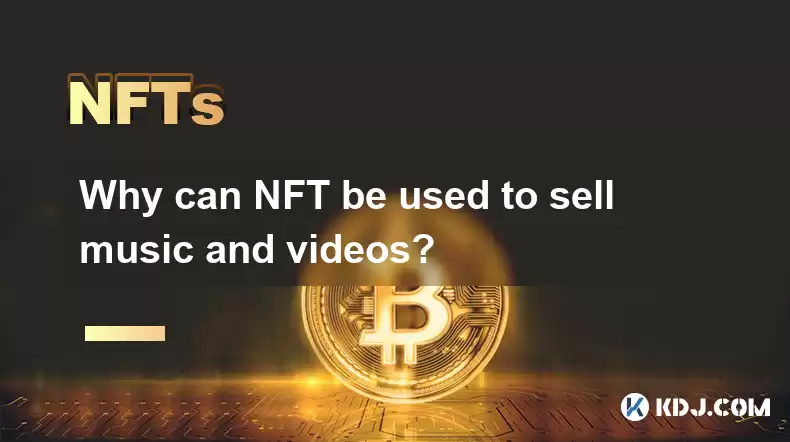
Non-Fungible Tokens (NFTs) have emerged as a revolutionary tool in the world of digital assets, particularly in the realm of music and video. The unique ability of NFTs to represent ownership of specific digital items makes them an ideal solution for selling music and videos. This article will explore the reasons why NFTs are suitable for this purpose, delving into their unique properties, the benefits they offer to creators and buyers, and the technological framework that supports their use.
NFTs are unique digital assets that cannot be replicated or exchanged on a one-to-one basis with other tokens. This uniqueness is crucial for selling music and videos, as it allows each piece of content to be represented as a distinct token. When an artist creates an NFT for a song or video, they are essentially minting a digital certificate of ownership that can be bought, sold, or traded on various blockchain platforms.
The Benefits of NFTs for Music and Video Creators
One of the primary benefits for creators is the ability to monetize their work directly. Traditional platforms often take a significant cut of the revenue, but with NFTs, artists can sell their music and videos directly to their audience, retaining a larger portion of the profits. This direct-to-consumer model empowers creators and gives them more control over their earnings.
NFTs also enable artists to offer unique experiences and rewards to their fans. For instance, an artist might release an NFT that includes exclusive access to behind-the-scenes content, virtual meet-and-greets, or even a share in future royalties. This not only enhances the value of the NFT but also fosters a deeper connection between the artist and their audience.
The Benefits of NFTs for Buyers
For buyers, NFTs offer a way to own a piece of digital culture. Owning an NFT for a song or video means having a verifiable proof of ownership that can be displayed and traded. This sense of ownership can be particularly appealing to fans who want to support their favorite artists and have a tangible connection to their work.
Additionally, NFTs can appreciate in value over time, especially if the artist gains more popularity or if the NFT includes additional perks. This potential for appreciation makes NFTs an attractive investment opportunity for buyers, who can purchase them as collectibles or speculative assets.
The Technological Framework Supporting NFTs
NFTs are built on blockchain technology, which provides a secure and transparent way to record ownership and transactions. Each NFT is linked to a specific piece of content through a unique identifier, ensuring that it cannot be duplicated or altered. This technology is what allows NFTs to function as verifiable proof of ownership for digital assets like music and videos.
The most commonly used blockchain for NFTs is Ethereum, which supports the creation and trading of NFTs through its ERC-721 and ERC-1155 token standards. These standards define how NFTs are created, managed, and transferred, providing a robust framework for the digital asset market.
How NFTs Revolutionize the Music and Video Industry
The use of NFTs in the music and video industry is revolutionizing how content is created, distributed, and consumed. By enabling direct sales and offering new ways for artists to engage with their audience, NFTs are breaking down traditional barriers and opening up new opportunities for creativity and innovation.
For instance, artists can use NFTs to experiment with new formats and business models. They can release limited edition NFTs that offer unique experiences or collaborate with other artists to create joint NFTs that combine their talents. These innovative approaches not only enhance the value of the NFTs but also enrich the overall experience for fans.
Challenges and Considerations
While NFTs offer many benefits, there are also challenges and considerations that need to be addressed. One of the main concerns is the environmental impact of blockchain technology, particularly the energy consumption associated with some blockchains like Ethereum. However, efforts are underway to transition to more sustainable solutions, such as Ethereum's move to a proof-of-stake consensus mechanism.
Another consideration is the need for education and awareness about NFTs. Many people are still unfamiliar with the concept and may be hesitant to invest in digital assets. Artists and platforms need to provide clear information and guidance to help potential buyers understand the value and potential of NFTs.
The Future of NFTs in Music and Video
The future of NFTs in the music and video industry looks promising, with continued growth and innovation on the horizon. As more artists and platforms adopt NFTs, we can expect to see new ways of engaging with fans and monetizing content. The technology is still evolving, and there is much potential for further development and refinement.
In conclusion, NFTs are transforming the way music and videos are sold and consumed, offering unique benefits to both creators and buyers. As the technology continues to evolve, it will be exciting to see how it shapes the future of the digital asset market.
Common Questions:
What makes NFTs suitable for selling music and videos?
NFTs are suitable for selling music and videos because they are unique digital assets that represent ownership of specific content. This uniqueness allows artists to sell their work directly to their audience, offering exclusive experiences and rewards while retaining a larger portion of the profits.
How do NFTs benefit music and video creators?
NFTs benefit creators by enabling direct sales, which means they can retain a larger portion of the revenue. Additionally, NFTs allow artists to offer unique experiences and rewards to their fans, fostering a deeper connection and enhancing the value of their work.
What are the advantages for buyers of music and video NFTs?
Buyers of music and video NFTs gain a verifiable proof of ownership, which can be displayed and traded. NFTs can also appreciate in value over time, making them an attractive investment opportunity. Additionally, owning an NFT provides a tangible connection to the artist's work.
What technological framework supports NFTs?
NFTs are built on blockchain technology, with Ethereum being the most commonly used platform. Ethereum supports the creation and trading of NFTs through its ERC-721 and ERC-1155 token standards, which provide a secure and transparent way to record ownership and transactions.
How are NFTs revolutionizing the music and video industry?
NFTs are revolutionizing the music and video industry by enabling direct sales, offering new ways for artists to engage with their audience, and allowing for innovative formats and business models. This is breaking down traditional barriers and opening up new opportunities for creativity and innovation.
What are some challenges and considerations with NFTs in the music and video industry?
Some challenges include the environmental impact of blockchain technology and the need for education and awareness about NFTs. Efforts are being made to address these issues, such as transitioning to more sustainable blockchain solutions and providing clear information to potential buyers.
What does the future hold for NFTs in the music and video industry?
The future of NFTs in the music and video industry looks promising, with continued growth and innovation expected. As more artists and platforms adopt NFTs, we can anticipate new ways of engaging with fans and monetizing content, further shaping the digital asset market.
Disclaimer:info@kdj.com
The information provided is not trading advice. kdj.com does not assume any responsibility for any investments made based on the information provided in this article. Cryptocurrencies are highly volatile and it is highly recommended that you invest with caution after thorough research!
If you believe that the content used on this website infringes your copyright, please contact us immediately (info@kdj.com) and we will delete it promptly.
- Cryptocurrency, Altcoins, and Profit Potential: Navigating the Wild West
- 2025-08-04 14:50:11
- Blue Gold & Crypto: Investing Disruption in Precious Metals
- 2025-08-04 14:30:11
- Japan, Metaplanet, and Bitcoin Acquisition: A New Era of Corporate Treasury?
- 2025-08-04 14:30:11
- Coinbase's Buy Rating & Bitcoin's Bold Future: A Canaccord Genuity Perspective
- 2025-08-04 14:50:11
- Coinbase's Buy Rating Maintained by Rosenblatt Securities: A Deep Dive
- 2025-08-04 14:55:11
- Cryptos, Strategic Choices, High Returns: Navigating the Meme Coin Mania
- 2025-08-04 14:55:11
Related knowledge
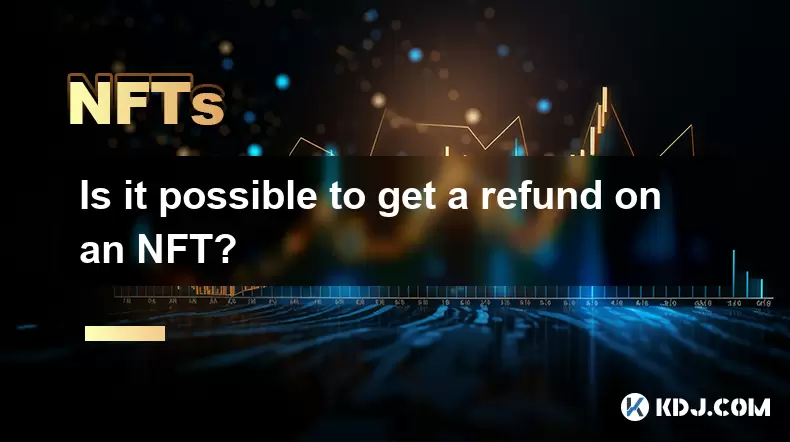
Is it possible to get a refund on an NFT?
Jul 21,2025 at 08:35pm
Understanding NFT Transactions and RefundsWhen you purchase an NFT (Non-Fungible Token), the transaction is typically recorded on a blockchain, making...
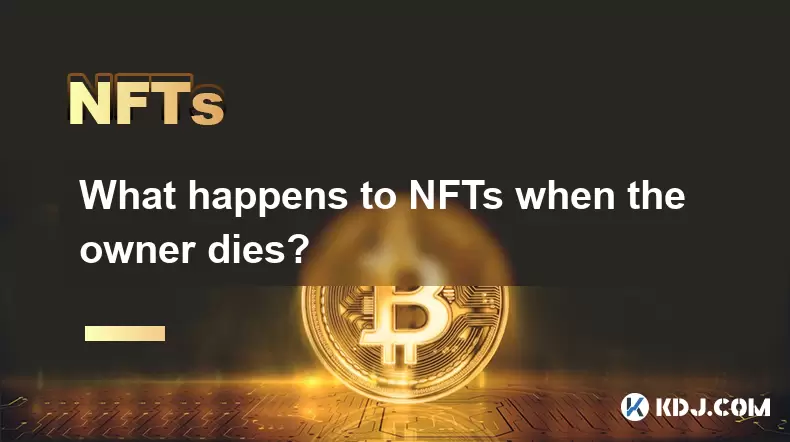
What happens to NFTs when the owner dies?
Jul 22,2025 at 02:43pm
Legal Ownership and Digital AssetsWhen an individual owns NFTs, the question of what happens to these assets upon their death is a pressing one. NFTs ...
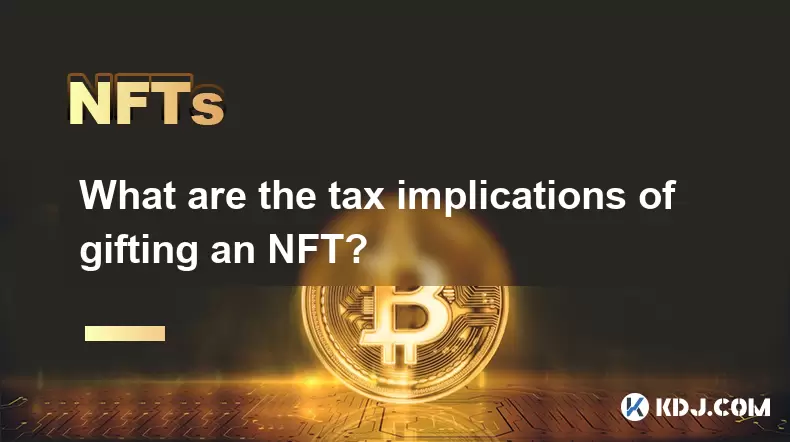
What are the tax implications of gifting an NFT?
Jul 19,2025 at 04:21am
Understanding the Basics of NFT GiftingGifting a Non-Fungible Token (NFT) involves transferring ownership from one individual to another without recei...
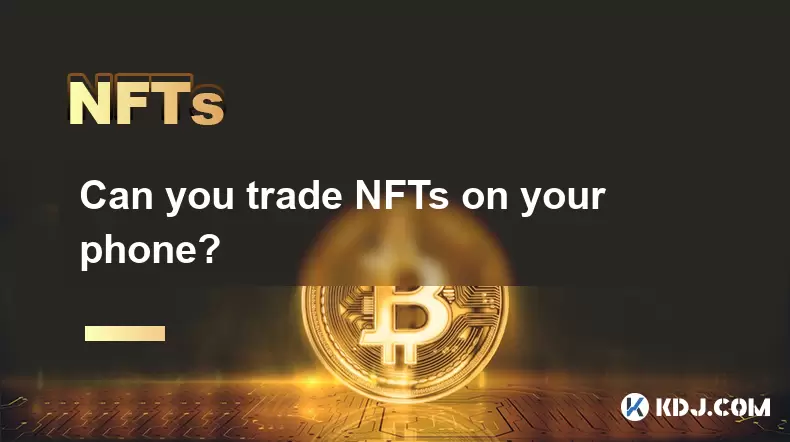
Can you trade NFTs on your phone?
Jul 18,2025 at 04:29am
Trading NFTs on Mobile DevicesYes, you can trade NFTs on your phone, and the process has become increasingly streamlined thanks to a variety of mobile...
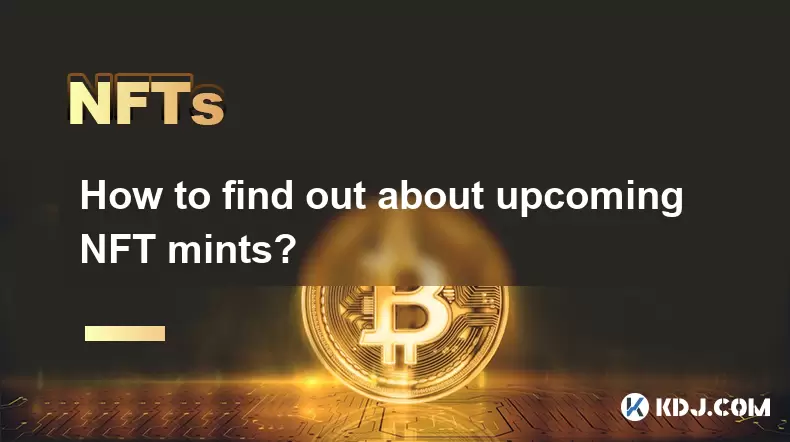
How to find out about upcoming NFT mints?
Jul 18,2025 at 11:50am
Exploring NFT Minting OpportunitiesUnderstanding the landscape of upcoming NFT mints is crucial for collectors, investors, and creators who wish to st...
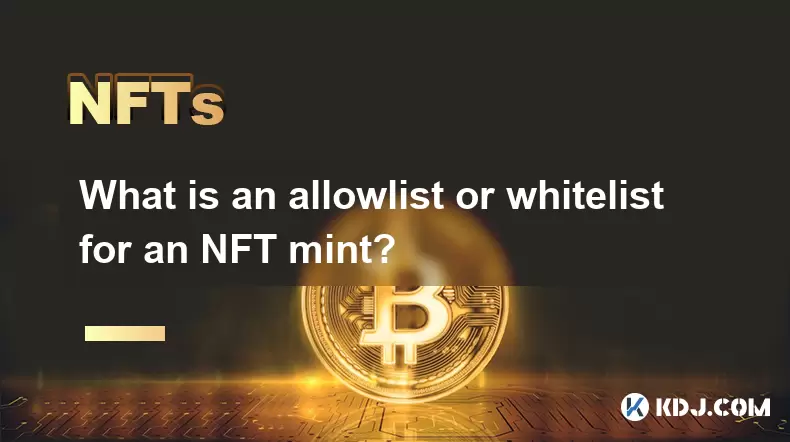
What is an allowlist or whitelist for an NFT mint?
Jul 20,2025 at 07:14pm
Understanding the Concept of an Allowlist for NFT MintingAn allowlist, also commonly referred to as a whitelist, is a mechanism used in the NFT mintin...

Is it possible to get a refund on an NFT?
Jul 21,2025 at 08:35pm
Understanding NFT Transactions and RefundsWhen you purchase an NFT (Non-Fungible Token), the transaction is typically recorded on a blockchain, making...

What happens to NFTs when the owner dies?
Jul 22,2025 at 02:43pm
Legal Ownership and Digital AssetsWhen an individual owns NFTs, the question of what happens to these assets upon their death is a pressing one. NFTs ...

What are the tax implications of gifting an NFT?
Jul 19,2025 at 04:21am
Understanding the Basics of NFT GiftingGifting a Non-Fungible Token (NFT) involves transferring ownership from one individual to another without recei...

Can you trade NFTs on your phone?
Jul 18,2025 at 04:29am
Trading NFTs on Mobile DevicesYes, you can trade NFTs on your phone, and the process has become increasingly streamlined thanks to a variety of mobile...

How to find out about upcoming NFT mints?
Jul 18,2025 at 11:50am
Exploring NFT Minting OpportunitiesUnderstanding the landscape of upcoming NFT mints is crucial for collectors, investors, and creators who wish to st...

What is an allowlist or whitelist for an NFT mint?
Jul 20,2025 at 07:14pm
Understanding the Concept of an Allowlist for NFT MintingAn allowlist, also commonly referred to as a whitelist, is a mechanism used in the NFT mintin...
See all articles

























































































